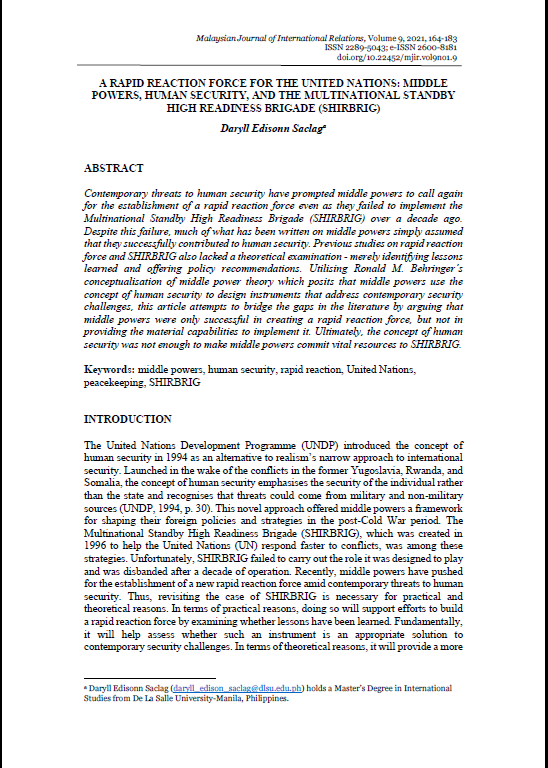A Rapid Reaction Force for the United Nations: Middle Powers, Human Security, and the Multinational Standby High Readiness Brigade (SHIRBRIG)
Main Article Content
Abstract
Contemporary threats to human security have prompted middle powers to call again for the establishment of a rapid reaction force even as they failed to implement the Multinational Standby High Readiness Brigade (SHIRBRIG) over a decade ago. Despite this failure, much of what has been written on middle powers simply assumed that they successfully contributed to human security. Previous studies on rapid reaction force and SHIRBRIG also lacked a theoretical examination - merely identifying lessons learned and offering policy recommendations. Utilising Ronald M. Behringer’s conceptualisation of middle power theory which posits that middle powers use the concept of human security to design instruments that address contemporary security challenges, this article attempts to bridge the gaps in the literature by arguing that middle powers were only successful in creating a rapid reaction force, but not in providing the material capabilities to implement it. Ultimately, the concept of human security was not enough to make middle powers commit vital resources to SHIRBRIG.
